The Narrow Margin

Brief Synopsis
Cast & Crew
Richard Fleischer
Charles Mcgraw
Marie Windsor
Jacqueline White
Gordon Gebert
Queenie Leonard
Film Details
Technical Specs

Synopsis
Los Angeles police detective Walter Brown and his partner, Gus Forbes, arrive in Chicago by train and immediately head for the apartment hideout of Mrs. Neall, a gangster's widow. Because she possesses her husband's "pay-off" list, Mrs. Neall has been subpoenaed to testify before a grand jury in Los Angeles, and Walter and Gus have been assigned to bring her safely there. While Walter and Gus collect Mrs. Neall, a gunman in a fur-collared coat slips into the apartment building's foyer. As Mrs. Neall and the detectives are descending the stairs, however, an unsuspecting tenant exits his apartment, startling the killer. Before fleeing, the gunman fires wildly up the stairs, felling Gus. Although shaken by his partner's death, Walter must immediately return to the train station with Mrs. Neall. In the taxi, Walter yells at the unsympathetic, crass widow for thinking only of herself, but duty-bound, gives her instructions on how to board the train without attracting attention.
Despite Walter's precautions, another gunman, Joseph Kemp, spots him boarding. Kemp appears at Walter's compartment door, claiming to have lost his luggage, but does not see Mrs. Neall, who is hiding in Gus's compartment. Soon after, Walter goes to the dining car and sits down next to passenger Ann Sinclair. While chatting with Ann, Walter nervously watches Kemp across the aisle and bolts as soon as Kemp departs. Unaware that Walter is spying on him, Kemp searches the detective's compartments but finds nothing. To avoid being spotted by Kemp in the corridor, Walter slips into the nearest unlocked compartment, which is occupied by a young boy and a middle-aged woman. Once Kemp has passed by, Walter then retrieves Mrs. Neall from the bathroom, where he had sent her. Walter is confident that Kemp will not return to his compartment, but a moment later, notices someone trying to open the door. The intruder, Vincent Yost, offers Walter a bribe to hand over Mrs. Neall, but Walter angrily declines.
The next morning, Walter sneaks into Kemp's berth while he is in the bathroom and finds a telegram informing Kemp that a man named Densel will be contacting him. Walter then spies obese passenger Sam Jennings sitting with Kemp in the dining car, and a moment later, Jennings asks Walter if he has an empty compartment to sell, as Kemp has indicated. When Walter says no, Jennings becomes upset and complains to the conductor. Later, during a stop in a Colorado town, Walter disembarks and sends a telegram to Los Angeles, inquiring about Kemp, Densel and Jennings. Walter then discovers that the young boy is Ann's son Tommy and the older woman his nanny, Mrs. Troll. Walter befriends the impressionable Tommy and ingratiates himself with Ann. Meanwhile, Kemp, who does not know what Mrs. Neall looks like and has been watching Ann, sends his own telegram, informing his boss that Ann is their target. After Ann mentions to Walter that Kemp has been staring at her, Walter realizes Kemp's mistake and, upon reboarding, tells Mrs. Neall. To Walter's disgust, the selfish Mrs. Neall expresses no remorse for the danger in which she has placed Ann. A bit later, Walter catches Kemp following Ann and, yanking him into an empty compartment, beats him. Though defeated, Kemp suggests that Walter sell Mrs. Neall's pay-off list, but Walter again refuses to be bribed. Walter then arrests Kemp, just as Jennings appears and identifies himself as a railroad detective.
Aware of Walter's mission, Jennings offers to escort Kemp to the baggage car, but on the way, Densel, who has replaced Yost, jumps him. After Kemp and Densel, the killer in the fur-collared coat, overwhelm and handcuff Jennings, they return to Walter's compartment. Mrs. Neall cannot hide in time and, while she is going for a gun in her purse, Densel shoots her in the back. Walter, meanwhile, has gone to Ann's compartment to warn her about Kemp, and she reveals that she is the real Mrs. Neall. Ann, who divorced Neall years before, informs Walter that she found the pay-off list among his belongings and mailed it to the district attorney. She also explains that the phony Mrs. Neall is an Internal Affairs detective assigned to investigate him in connection with the graft trial, while also acting as a decoy. Having determined that the phony Mrs. Neall's name is Sarah Meggs, the gunmen conclude that Ann really is their target. Unable to enter Ann's compartment, Densel grabs Tommy in his compartment just as Kemp pulls the train's emergency brake. Yelling to Walter in the corridor, Densel threatens to hurt Tommy if he does not receive the list. Densel is unaware that Walter can see him in a window reflection and is tricked into walking away from Tommy. Walter shoots Densel through the door, then he and the freed Jennings chase Kemp. Before the detectives can catch him, Kemp jumps off to meet a car that has been racing alongside the train, but the getaway car is soon intercepted by the police. Later, as they head for the Los Angeles Hall of Justice, Ann bravely informs Walter that she is not hiding anymore.

Director
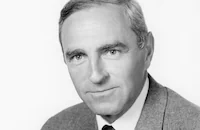
Richard Fleischer
Cast

Charles Mcgraw

Marie Windsor

Jacqueline White

Gordon Gebert

Queenie Leonard
David Clarke
Peter Virgo
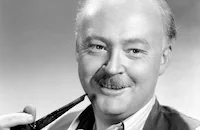
Don Beddoe

Paul Maxey
Harry Harvey
Mike Lally
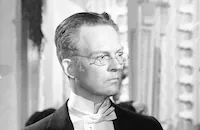
Don Dillaway
George Sawaya
Tony Merrill
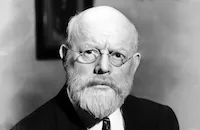
Howard Mitchell
Milton Kibbee
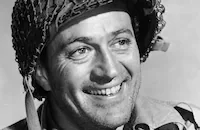
Don Haggerty
Johnny Lee
Ivan H. Browning
Clarence Hargrave
Napoleon Whiting
Bobbie Johnson
Will Lee
Edgar Murray
Franklin Parker
Jasper Weldon
Crew
Albert S. D'agostino
George E. Diskant
William Dorfman
Earl Felton
Martin Goldsmith
Jack Leonard
Jack Okey
Clem Portman
Stanley Rubin
Francis Sarver
Darrell Silvera
William Stevens
Robert Swink

Photo Collections
Videos
Movie Clip





Trailer
Hosted Intro
Film Details
Technical Specs

Award Nominations
Best Writing, Screenplay
Articles
The Narrow Margin (1952)
Too bad the film is largely forgotten today, because not only is it a first-rate example of the post-war film noir genre, it also takes place almost entirely on a train. Director Richard Fleischer exploits the narrow corridors and cramped compartments to maximum effect, heightening the sense of claustrophobia and the paranoia of being trapped without an exit. What's more, Fleischer uses the sound of the moving train continuously in the background which generates a certain driving tension. The train interiors were all shot on an RKO soundstage while exterior station scenes were lensed in Los Angeles' Union Station; all in an amazingly short 15-day schedule.
Within this confined setting, two detectives escort a racketeer's widow from Chicago to Los Angeles where she will give testimony to a grand jury. But she's being pursued by three hit men determined to shut her up permanently. The big problem for the killers is that they have never seen the woman, a set-up for a vicious game of cat and mouse where (without giving too much away) nothing is quite what it seems. Even the cops come to realize they have been left in the dark. The suspense and wild twists resulting from this clever plot made The Narrow Margin one of RKO's most profitable B-movies; it turned a huge profit for the studio, considering the picture's meager budget (It was reported to be somewhere between $188,000 and $230,000).
Much of the success can be attributed to Fleischer's deft handling of the material and his appropriately hard-boiled cast. Fleischer has become known for large-scale action epics, including 20,000 Leagues Under the Sea (1954), The Vikings (1958) and Tora! Tora! Tora! 1970). But he was equally at home in taut thrillers like Violent Saturday (1955), Compulsion (1959) and The Boston Strangler (1968). The son of cartoonist Max Fleischer (who also "fathered" Popeye and Betty Boop), he began his career in the short subjects department at RKO, eventually graduating to features directing tearjerkers with child actress Sharyn Moffet (My Pal, Wolf, 1944). But it was with The Narrow Margin and an earlier suspense film, Trapped (1949), that Fleischer really made his mark.
A certain degree of the film's popularity should also be credited to its female star, Marie Windsor, the B-movie queen with the killer body and bedroom eyes. A former Miss Utah and model for cheesecake illustrator Vargas, Windsor (she died in December 2000) was an intelligent, highly personable woman most often cast as hard-as-nails dames (she was memorable as the destructive floozy in Stanley Kubrick's 1956 crime drama The Killing). But she didn't really mind the typecasting that marked her career. In a 1992 interview with Filmfax magazine, Windsor said she always wanted to play "romantic, dramatic and sensitive women," but her height (5'9") and sexy looks had worked against her. "However, I've always enjoyed my work so much that I like doing anything," she said. "Playing heavies is fun, and the parts usually have meatier dialogue to chew on." Her role in this film as the gangland widow with a few secrets of her own was one of the best of her career.
The Narrow Margin was remade under the same title in 1990 with Gene Hackman and Anne Archer. Although ingenious and suspenseful in its own right, many of the plot details were substantially changed, and the action was opened up to set more of the story outside the train.
Director: Richard Fleischer
Producer: Stanley Rubin
Screenplay: Earl Felton, Martin Goldsmith and Jack Leonard (story)
Cinematography: George E. Diskant
Editing: Robert Swink
Art Direction: Albert S. D'Agostino, Jack Okey
Cast: Marie Windsor (Mrs. Neall), Charles McGraw (Detective Sgt. Walter Brown), Don Beddoe (Detective Sgt. Gus Forbes), Queenie Leonard (Mrs. Troll), David Clarke (Kemp).
BW-72m. Closed captioning.
by Rob Nixon

The Narrow Margin (1952)
The Narrow Margin - 1952 Film Noir Classic!
"Well, use your own sink."
That's just one of the withering exchanges Charles McGraw and Marie Windsor launch at each other in The Narrow Margin, the 1952 RKO B-movie that's the prize of Volume 2 of Warner Home Video's Film Noir Classic Collection. He's a Los Angeles cop assigned to protect her, a slain gangster's wife scheduled to testify before a grand jury against her late husband's associates. He doesn't like her on general principle - "What kind of a dame would marry a hood?" he asks before even meeting her. And when the people she's testifying against make their first attempt at killing her and get his trusty old partner (Don Beddoe) instead, his resentment only increases. By the time he gets her on the train from Chicago to Los Angeles, with hit men on their trail, the only thing between her and a bullet is his pride in his job. As the above exchange in one of their train compartments shows, he's not afraid to spit out his disgust and she's not afraid to dish it back at him, either.
McGraw and Windsor played a slew of noir supporting roles - gravel-voiced McGraw in The Killers and
Director Richard Fleischer (Compulsion, Fantastic Voyage and, eventually, schlock like Red Sonja) does a good job at developing suspense, often shooting with a handheld camera during scenes in which the cop tries to outmaneuver the killers in the train's corridor, or in a very convincing fight scene in the train's tiny men's room. Fleischer and cinematographer George E. Diskant (Desperate, They Live by Night) occasionally let fast-moving characters slip out of focus, adding urgency to the action, while the introduction of an obese passenger (Paul Maxey) who regularly becomes an obstacle for the cop to get around (or not) thickens the suspense and injects humor, too. There is, of course, also dark humor in the barbs traded by the two leads. "Sister, I've known some pretty hard cases in my time," the cop tells the widow at one point. "You make 'em all look like putty."
The crassness of the gangster's widow contrasts with the classy poise of the shapely blonde (Jacqueline White) the cop befriends in the dining car. Her young son (Gordon Gebert) has a running infatuation with the mysterious cop that effectively adds to both the danger and levity at different times, and the cop seems more devoted to protecting the blonde (after the killers think she's the grand jury witness) than protecting his assignment. But the conflicted cop finds that even his notions of good and evil can get turned upside down in the significant plot twist towards the end of the fleet 71-minute thriller.
The Narrow Margin was made just as Howard Hughes was taking over RKO. Hughes liked the movie so much that he sat on it for 18 months while pondering whether to remake it as an A-movie, perhaps even as a reteaming of Macao stars Robert Mitchum and Jane Russell. As was his habit, Hughes also fiddled with the editing of the movie, cutting (perhaps inadvertently) Windsor's last scene and, in effect, dissing her character in very glaring fashion.
The Narrow Margin DVD includes an audio commentary by French Connection director William Friedkin that is, on one hand, a good place for someone not well-versed in film noir to learn a few basics. He also makes a particularly shrewd point when he talks of how writers and directors of the noir era didn't analyze characters as much as moviemakers do today - a major reason why so many movies today are too self-conscious to get their drama across, if you ask me. But his commentary is also really riddled with mistakes and misunderstanding. Sometimes in his discussion of noir or post-war Hollywood, Friedkin gets his facts wrong, like stating that quintessential noir author Cornell Woolrich (Night Has a Thousand Eyes, Phantom Lady) wrote screenplays (he didn't) or that RKO was the studio where the Marx Brothers made their early comedies (that was Paramount; they made only Room Service, a minor mid-career movie, at RKO).
And although Friedkin speaks convincingly of the stylistic touches of noir, how in the world can he say during the scene in which a heavy tries to bribe McGraw's cop that, in noir, "the good guy is never going to take (the bribe)." A little later, he adds that "the heroes" were never going to be corrupted. Is he kidding!? Almost the whole genre is about temptation - about people, generally men, transgressing the law and often even their own nature to get power, sex, money and every conceivable combination of those three. "Never going to be corrupted"? Try telling that to the writers and directors of The Postman Always Rings Twice, Out of the Past, Sweet Smell of Success, The Set-Up, Double Indemnity and a gross of other noirs. Friedkin should know better.
The commentary also includes snippets from an interview with Fleischer, but it's unclear when these audio clips are from or why there aren't more of them to include.
The Narrow Margin was disastrously remade in 1990, with Gene Hackman and Anne Archer in the McGraw and Windsor roles. The remake removed any moral taint from the widow, and with it all of the tension between her and her protector, and foolishly "opened up" the story with lots of stuntwork atop the train and pretty scenery. The result was a dull action thriller in which bland good guys faced off against bland bad guys, and that ain't noir.
For more information about The Narrow Margin, visit Warner Video. To order The Narrow Margin, go to TCM Shopping.
by Paul Sherman
The Narrow Margin - 1952 Film Noir Classic!
Quotes
We're ready to make a deal. You have her, we want her, how much? It's as simple as that.- Vincent Yost
You're under arrest.- Walter Brown
For what?- Vincent Yost
Attempted bribery.- Walter Brown
Bribery? Heh -- you'd never make it stick. I'm a sales executive for the Midwest Equipment Company, Chicago. I've never even gotten as much as a parking ticket.- Vincent Yost
I don't say I've never been tempted. Of course I've been tempted; I'm human like anybody else. But to spend the rest of my time worrying when I'll be caught up with by some hoodlum holding a first mortgage on my life, payable on demand...! Naah. No kind of money worth that.- Walter Brown
Pardon me, I'd like to get through.- Walter Brown
Sorry, this train wasn't designed for my tonnage, heh. Nobody loves a fat man except his grocer and his tailor!- Jennings
Sister, I've known some pretty hard cases in my time; you make 'em all look like putty. You're not talking about a sack of gumdrops that's gonna be smashed -- you're talking about a dame's life! You may think it's a funny idea for a woman with a kid to stop a bullet for you, only I'm not laughing!- Walter Brown
Where do you get off, being so superior? Why shouldn't I take advantage of her -- I want to live! If you had to step on someone to get something you wanted real bad, would you think twice about it?- Mrs. Neall
Shut up!- Walter Brown
In a pig's eye you would! You're no different from me.- Mrs. Neall
Shut up!- Walter Brown
You're off your stick--way off.- Walter Brown
Trivia
The film was shot in 13 days and the only part actually filmed on board a train was a few seconds of the arrival in Los Angeles.
In preference to removing various walls from the sets, director Richard Fleischer decided to make extensive use of a handheld camera that could be brought into rooms; this was one of the first films to do so. To save money the train sets were rigidly fixed to the floor, and the camera was moved to simulate the train rocking.
Notes
The working title of this film was Target. Although pre-production news items described Martin Goldsmith and Jack Leonard's story as a "forthcoming magazine serial," no evidence that the story was ever published has been found. Hollywood Reporter production charts list Vince Barnett as a cast member, but his appearance in the final film is doubtful. According to a May 1952 Los Angeles Examiner item, the film cost approximately $200,000 to make and was a "sleeper" hit for RKO. Reviewers praised the picture's tautness and imaginative camera angles. Many film historians consider The Narrow Margin to be one of the best pictures ever produced at RKO and a quintessential example of the film noir genre. For their work on the film, Martin Goldsmith and Jack Leonard received an Academy Award nomination in the Writing (Motion Picture Story) category. Peter Hyams directed Gene Hackman and Anne Archer in a 1991 Tri-Star remake of Goldsmith and Leonard's story, titled Narrow Margin.

Miscellaneous Notes
Released in United States 1997
Released in United States Spring May 1952
Shown at Telluride Film Festival August 29 - September 1, 1997.
Broadcast over TNT (colorized version) February 13, 1991.
Remade in 1990 under the same title, featuring Gene Hackman in the leading role.
Released in United States 1997 (Shown at Telluride Film Festival August 29 - September 1, 1997.)
Released in United States Spring May 1952
















